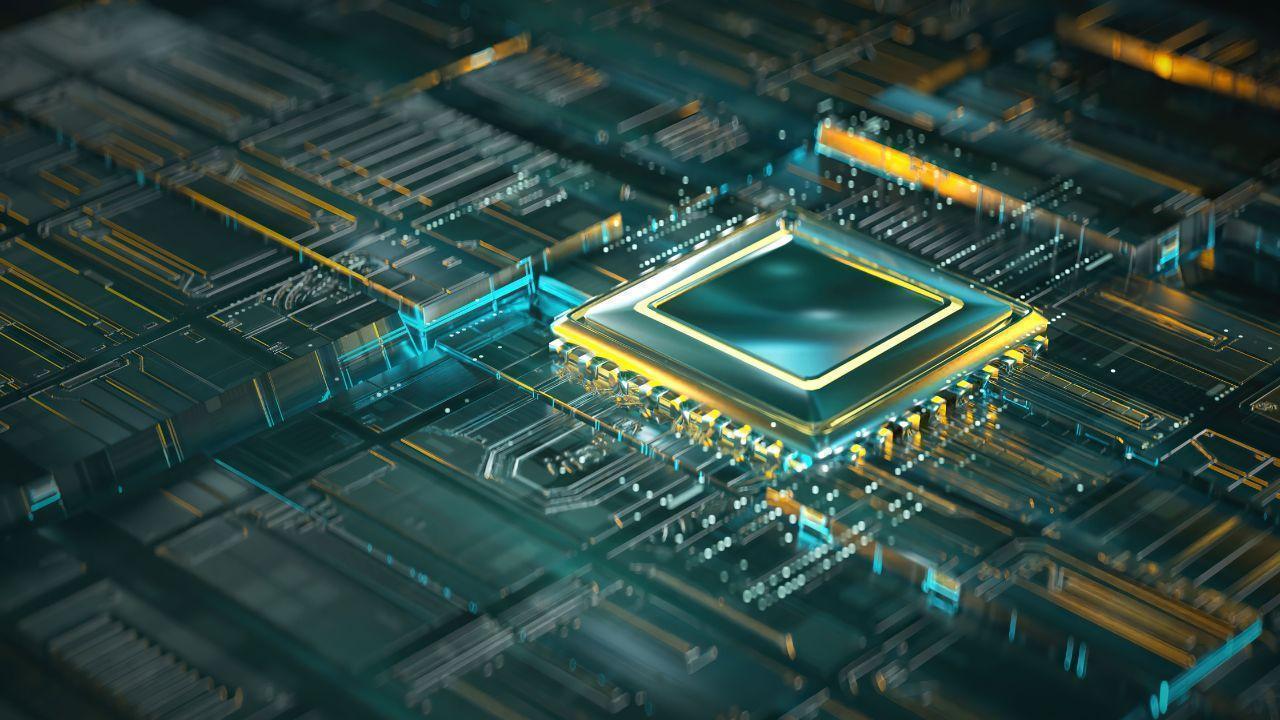
Post by : Zayd Kamal
Quantum computing is often hailed as the next big leap in technological innovation. Unlike classical computers, which process information as binary bits (0s and 1s), quantum computers use quantum bits or qubits. These qubits can exist in multiple states simultaneously, allowing quantum computers to solve problems at speeds far beyond current capabilities. With its potential to revolutionize industries and impact every aspect of our lives, 4 Ways Quantum Computing Could Change the World, for Better or Worse has become a topic of much debate.
In this article, we’ll explore the possible benefits and risks associated with quantum computing and how it could dramatically alter our future.
One of the most promising aspects of quantum computing is its ability to supercharge scientific research. The speed and efficiency at which quantum computers can process data allow for solving complex problems that would otherwise take classical computers thousands of years to crack. For instance, in the field of medicine, quantum computing could accelerate drug discovery by simulating molecular structures at a much faster rate. Researchers could potentially identify the best molecular candidates for treatments and vaccines in a fraction of the time it currently takes.
In addition to health, quantum computing could significantly advance fields like materials science, climate modeling, and space exploration. The enhanced computational power could lead to the discovery of new materials with unique properties, revolutionizing everything from electronics to energy production.
However, there are concerns regarding how rapidly these advancements could outpace regulations and ethical considerations. While the scientific benefits are immense, 4 Ways Quantum Computing Could Change the World, for Better or Worse depends on how well these developments are managed.
Quantum computing’s ability to break current encryption methods is one of the biggest causes of concern in the tech world. Classical encryption methods, such as RSA and AES, rely on the difficulty of factoring large numbers, a process that’s practically impossible for classical computers to complete in a reasonable timeframe. However, quantum computers could theoretically break these encryption methods in seconds, putting sensitive data and global security at risk.
On the flip side, quantum computing could also create a new generation of unbreakable encryption algorithms, such as quantum key distribution (QKD). These encryption methods leverage the principles of quantum mechanics, such as quantum entanglement, to create secure communication channels that are resistant to eavesdropping. In this case, 4 Ways Quantum Computing Could Change the World, for Better or Worse would be seen in a more positive light, providing an unprecedented level of data protection.
The challenge here will be in transitioning from old encryption protocols to newer quantum-resistant systems before the security risks become a reality. Governments, businesses, and individuals will need to adapt quickly to protect sensitive information in the quantum age.
Quantum computing holds the potential to revolutionize artificial intelligence (AI) and machine learning (ML) by enabling faster and more efficient processing of massive datasets. Currently, AI and ML models require vast amounts of data and computational power to train, often taking weeks or months to run on classical computers. Quantum computing could dramatically reduce the time it takes to train these models, allowing AI systems to solve problems more quickly and accurately.
This leap in processing power could lead to breakthroughs in AI applications, such as natural language processing, predictive analytics, and autonomous vehicles. AI systems could make better decisions in real-time, improving everything from healthcare diagnostics to business strategies.
However, the rapid growth of AI powered by quantum computing raises ethical concerns. The potential for creating highly intelligent and autonomous systems could outpace our ability to regulate and control them. The risk of AI making decisions without human oversight could lead to unintended consequences. As quantum computing advances, there must be a focus on creating frameworks to ensure that AI development is safe, transparent, and ethical.
Quantum computing will undoubtedly disrupt a wide range of industries, from finance to logistics, manufacturing, and beyond. In finance, quantum computers could enhance financial modeling, portfolio management, and risk assessment, allowing for more accurate predictions and decisions. In logistics, quantum computing could optimize supply chains by solving complex problems in real-time, cutting down costs and improving efficiency.
However, this disruption comes with the potential for significant job displacement. As quantum-powered automation and AI systems begin to outperform human workers in certain tasks, industries may see a shift in the types of jobs available. Many routine and repetitive jobs could be automated, leading to a need for a more tech-savvy workforce.
While new jobs will emerge in fields like quantum software development, research, and quantum hardware manufacturing, it’s unclear whether these opportunities will be accessible to the existing workforce. There will need to be significant investment in education and reskilling programs to help workers adapt to the changes brought about by quantum computing.
This article discusses 4 Ways Quantum Computing Could Change the World, for Better or Worse by exploring its potential impact across various industries. Quantum computing has the power to accelerate scientific discovery, revolutionize cryptography and security, enhance artificial intelligence and automation, and disrupt existing industries and job markets. While quantum computing promises great advancements, there are also concerns about data privacy, ethical challenges in AI, and the need for a skilled workforce to adapt to these changes. The article highlights the importance of balancing innovation with regulation to ensure quantum computing benefits society as a whole.
This article is provided by DXB News Network for informational purposes only. The views and insights presented here are based on current trends in quantum computing and its potential implications, which may evolve over time. Readers are encouraged to consult other sources and experts to gain a more comprehensive understanding of quantum computing and its future impact. DXB News Network does not assume responsibility for any decisions made based on the content provided.
#trending #latest #QuantumComputing #TechInnovation #FutureOfTech #AI #TechnologyExplained #DigitalRevolution #ScienceBreakthroughs #TechForGood #QuantumTechnology #FutureOfComputing #breakingnews #worldnews #headlines #topstories #globalUpdate #dxbnewsnetwork #dxbnews #dxbdnn #dxbnewsnetworkdnn #bestnewschanneldubai #bestnewschannelUAE #bestnewschannelabudhabi #bestnewschannelajman #bestnewschannelofdubai #popularnewschanneldubai










Sheikh Mansour Arrives in Kuwait to Boost UAE-Kuwait Relations
Sheikh Mansour arrives in Kuwait for an official visit to meet the Emir, aiming to strengthen UAE-Ku

Story :The Merchant of Manchester - by Dr Amrinder Pal Singh
Story of loss, Kindness, Betrayal… and Legacy

Rashid Al Obad Appointed Director General of Shams
Sheikh Sultan issues Emiri Decree appointing Rashid Al Obad as Director General of Sharjah Media Cit

Dubai’s Government Best Practices Series 2025 Highlights Innovation
The Government Best Practices Series 2025 in Dubai focused on government innovation, digital service

Dubai Hosts GenAI Masterclass for Future Family Leaders
Dubai Centre for Family Businesses held a GenAI masterclass to train 24 young leaders in using AI fo

ArtDomain by DXB News Network Opens to Strong Global Response — Applications Begin for A50 and The Art Guild.
ArtDomain by DXB News Network Opens to Strong Global Response — Applications Begin for A50 and The A

Dembele's Goal Gives PSG a 1-0 Win Over Arsenal in Semi-final
Ousmane Dembele scores early to give PSG a 1-0 win over Arsenal in their Champions League semi-final